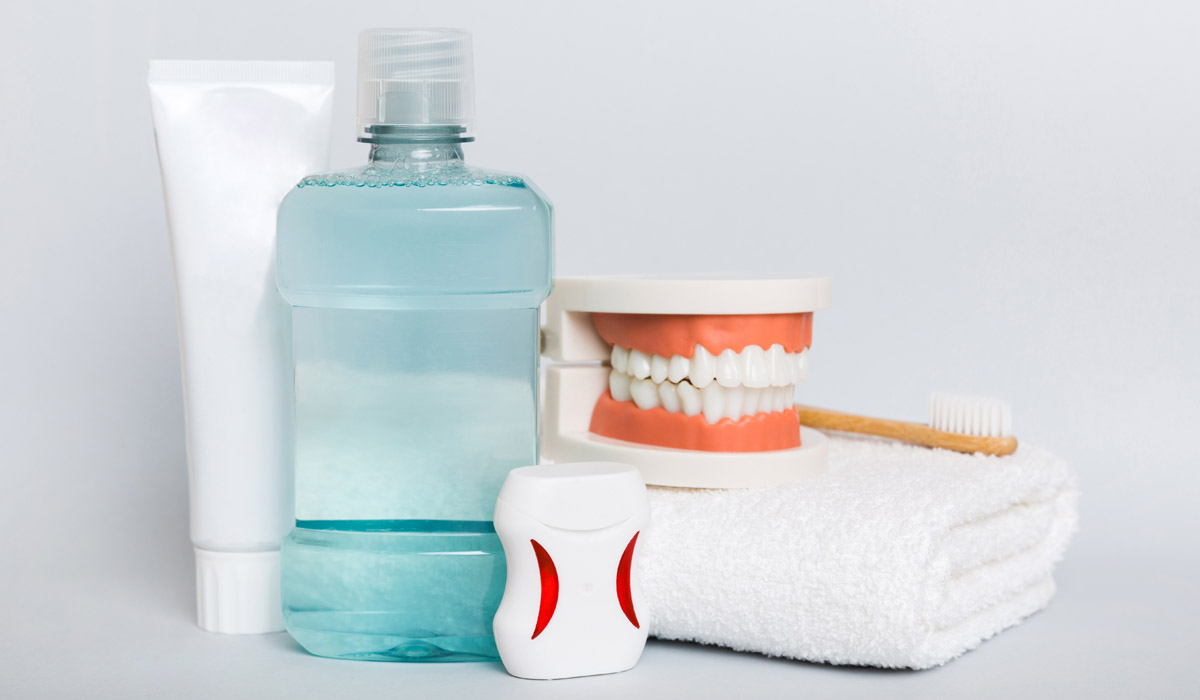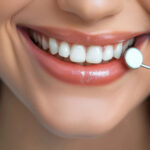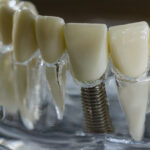I have witnessed many patients getting excited about their upcoming surgery as soon as we finalized their dental implant plan. I always welcome that kind of reaction from them. They know that the aesthetics and functionality of a complete set of teeth are already within their reach.
On the other hand, I understand if some get nervous as they think ahead of their recovery. However, dental implant aftercare is a crucial part of the process because this can determine the success of your procedure.
What NOT To Do After Dental Implant Surgery
Your mouth is in a very sensitive state while you’re recovering from implant surgery. Avoid doing the following to ensure that your implant site heals properly:
-
Eating hard, crunchy, spicy, and chewy foods
The dental implant procedure involves creating tiny incisions in your gums where the implants will be inserted through. Your gums will be swollen and sore right after the placement.
To protect your gums during this time, avoid hard, crunchy, spicy, and chewy foods. These foods can prolong your healing process. They can irritate or stick to the surgical site or dental implant, increasing the risk of infection.
-
Strenuous activity
This includes doing your normal workout routine. Overexerting yourself from any strenuous activity only slows down your recovery. This form of activity speeds up the heart rate. Boosting your blood circulation increases the chance of post-operative bleeding and swelling, adding up to pain and causing complications. While you may have the best intention while exerting physical effort, remember that your body should be focused on healing.
-
Smoking
Dental implant surgery is a perfect reason to stop smoking for good. But the oral surgeon will only recommend that you stop smoking for at least a week post-surgery.
Numerous study shows that there is a correlation between smoking and dental implant failure. Nicotine in tobacco products tightens blood vessels and lessens blood flow and oxygen to the soft tissue. This can cause your implants to not recover properly.
-
Nail-biting
This seemingly harmless habit damages your oral health, especially if you have new implants. Nail-biting can chip or break them and can add pressure on your jaw because of the protruding position.
Most importantly, this brings bacteria into your mouth that can infect the surgical site. If you find this habit hard to break, mouth guards help ensure that your mouth is free from any foreign bacteria.
-
Chewing on ice
The cold temperature and the solid nature of ice can crack even a natural tooth. Imagine what this can do to your new implants. Ice chewing is a habit that will never be encouraged because it can damage the protective layer of a tooth. Crunching on ice will also cause irritation to your newly installed implants.
-
Consuming hot food and drinks
The tissue around your implants needs some time to recover. Hot food or drinks can dissolve your stitches and cause additional stress on your mouth tissue. The heat can also cause increased bleeding, which would negatively affect the surgical area and its ability to recover.
-
Alcoholic and carbonated beverages
These drinks can irritate the surgical area that will need time to recover. Refrain from drinking alcoholic beverages for at least a month after your surgery because they may interact with your pain medications. Alcoholic beverages also dry out the mouth and can negatively affect the mouth’s natural capacity to heal. Avoid carbonated fluids for at least two weeks because the acid they contain can disturb your wound.
-
Drinking with a straw
For the first few days after surgery, always drink from a glass and avoid using a straw. The pressure of sucking on a straw dries the socket and pulls open the wound. This can also dislodge the blood clot, undoing the progress of your recovery.
What To DO After Dental Implant Surgery

Your dental implants are still fusing with your bone and tissues for the first few weeks after your procedure. So, here are the eight things you can do to guarantee that they fuse well, making your surgery a success:
-
Get plenty of rest
Remember that you have just had surgery, so allow your body to heal itself by simply resting. You are also advised to sleep with your head slightly elevated with an extra pillow.
This is most crucial in the succeeding days after your surgery, and straining yourself will only slow down your recovery. Gradually resume your daily activity once you start feeling better. Continue avoiding strenuous activities first because they can expose you to complications.
-
Ice the surgical site
Ice is known as a wonder when it comes to alleviating pain, discomfort, or swelling. You can also use a cold compress, a plastic container filled with ice, or any frozen or cold object.
Always remember to wrap the item around a towel and never place it directly onto your cheeks. Then place it gently against your skin for around 20 minutes. You can continue doing these steps within the first 24 hours after your surgery.
-
Be on a soft and nutritious diet
Be gentle with your new implants for the first 24-48 hours by eating soft foods. Cutting your food effortlessly with just a fork is the rule of thumb to see if it is soft enough. Good nutrition should also aid your healing. During this timeframe, avoid hot and spicy foods as they can irritate and cause the surgical site to bleed.
Please also refrain from eating sticky, crunchy, and chewy foods. The temporary crowns can take time to process them during your recovery period. There are also patients who can go back immediately to their normal diet, but a slow transition is still advisable.
-
Stay hydrated
Your recovery from your dental implant surgery is another reason to keep yourself hydrated. Proper hydration helps your body expel toxins that can slow down your healing. Dehydration also affects all of your tissues. This gives you a dry mouth. It is never good for your oral health because a dry mouth is the perfect breeding ground for bacteria.
-
Gargle with salt water
Keeping your mouth free from bacteria is a crucial aspect of your healing. Luckily, there is a natural, cost-efficient, and convenient way of ensuring this. Just mix ¼ to ½ teaspoon of salt with a cup of warm water, and keep it at the right temperature.
The trick here is to hold the solution over the surgical site. This basic antiseptic solution will reduce the bacterial formation in your mouth and lessen the likelihood of complications.
-
Practice good oral hygiene
Even if they are not natural teeth, dental implants still need proper oral care. Continue brushing, flossing, and rinsing the mouth with a mild oral antiseptic or saltwater.
Use a soft-bristled toothbrush, and refrain from using an electric toothbrush in the meantime. Brushing your teeth vigorously can irritate your dental implants and can therefore prolong your recovery time.
-
Take medication as prescribed
You should take all prescribed medications to avoid post-operative complications. You will be given antibiotics to prevent infection at the surgical site. Your surgeon will also advise you to take ibuprofen for pain relief and as an anti-inflammatory.
If you cannot take ibuprofen, there are alternatives that your doctor can prescribe you such as Tylenol. To relieve extreme pain, a stronger medication can be prescribed to you. Please make sure to follow the directions given to you and avoid alcohol while on medications.
-
Keep in touch with your surgeon
Your surgeon will monitor the progress of your recovery. Do not hesitate to contact your surgeon if you are experiencing pain or uncommon problems while you heal from surgery.
Even if you have already recovered, you will still need to schedule regular cleanings at least twice a year. Dental health professionals are trained to look after your dental implant. They can alert you should there be issues that need to be addressed along the way.
Dental Implant Aftercare Does Not Have To Be Stressful
Madison Dentistry will guide you every step of the way while you consider a dental implant procedure. Our clinic is always open for any inquiries to ensure that you get the best smile, both in terms of function and aesthetics. You may contact us through this page or call us at 973-822-8003.




